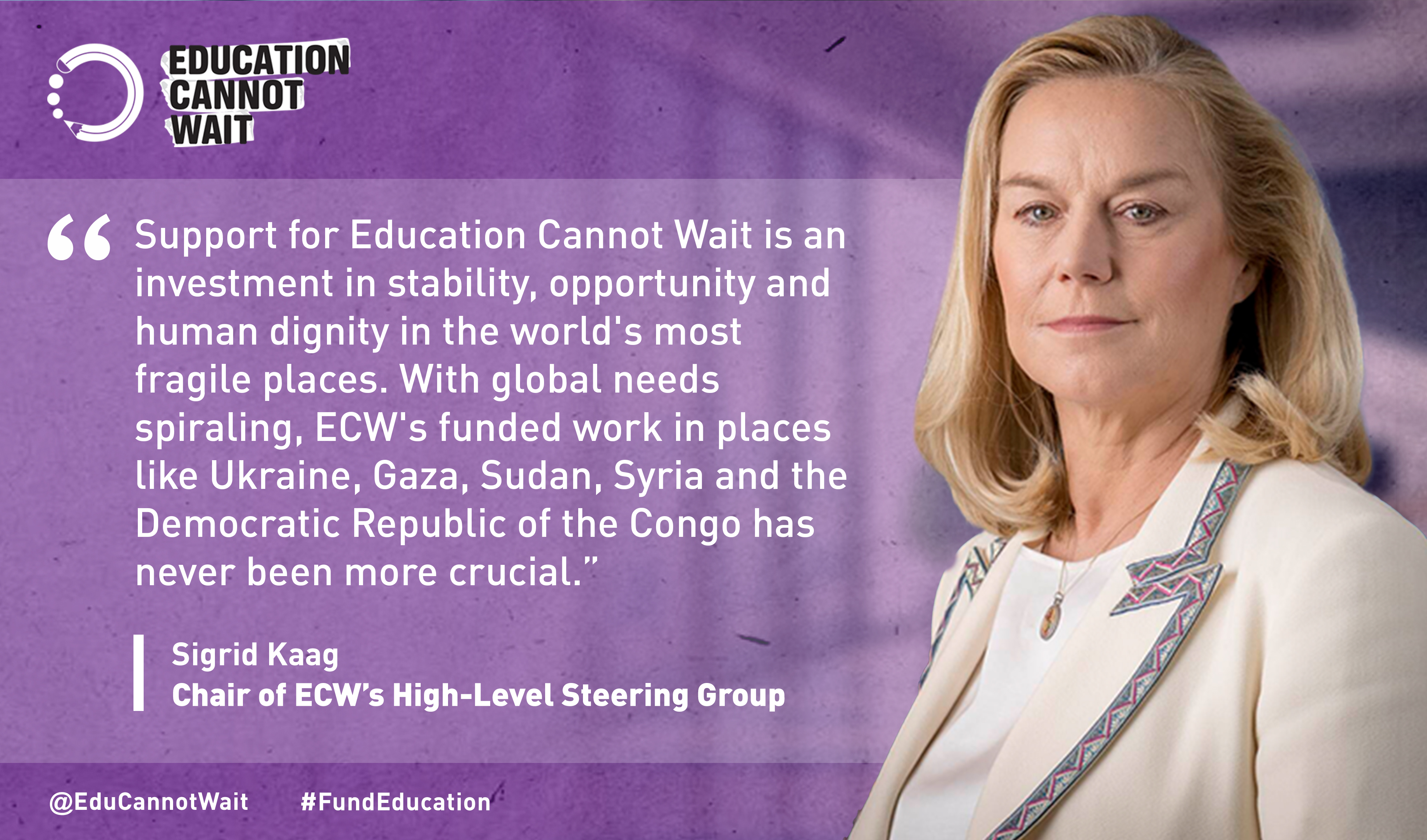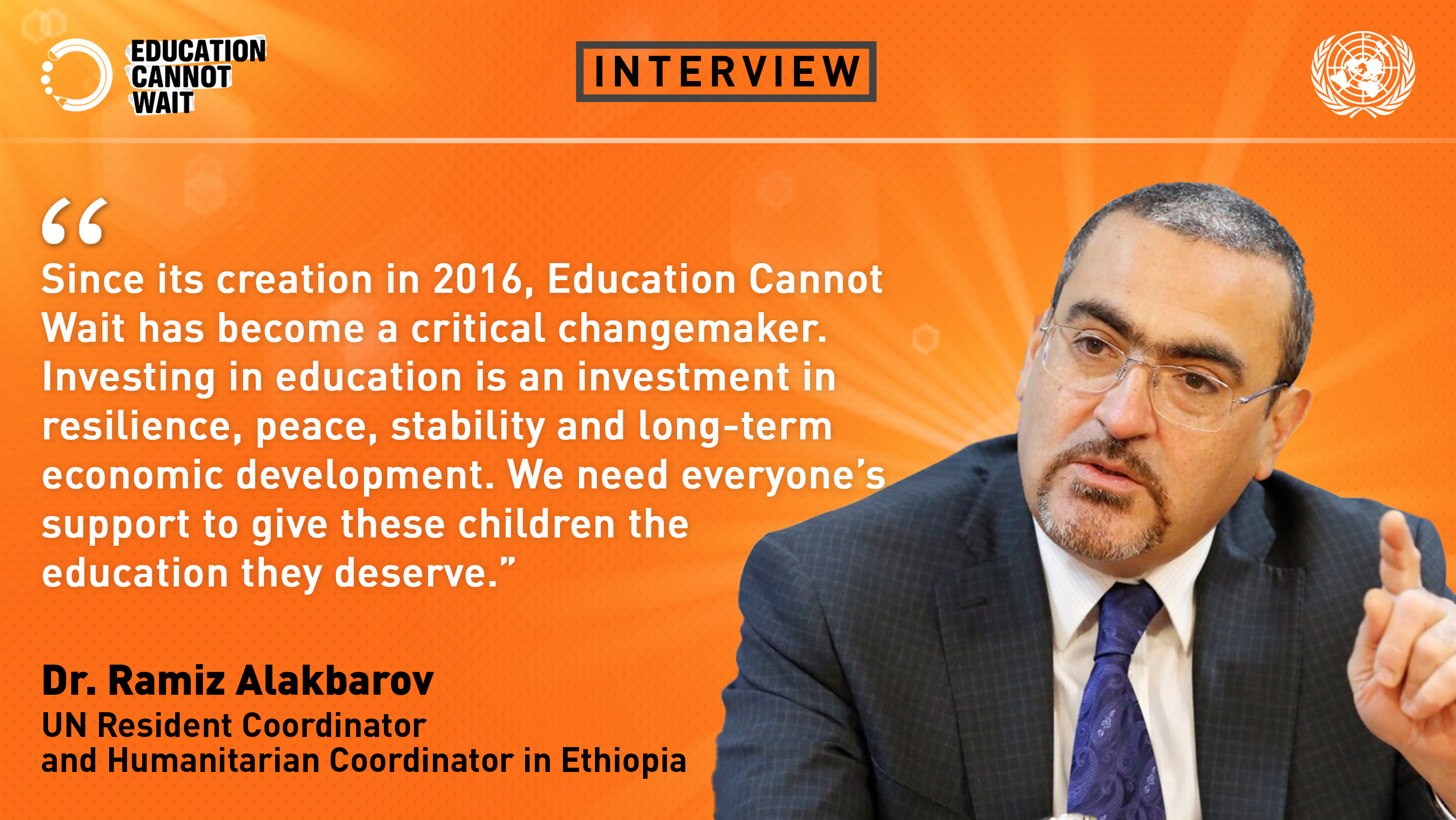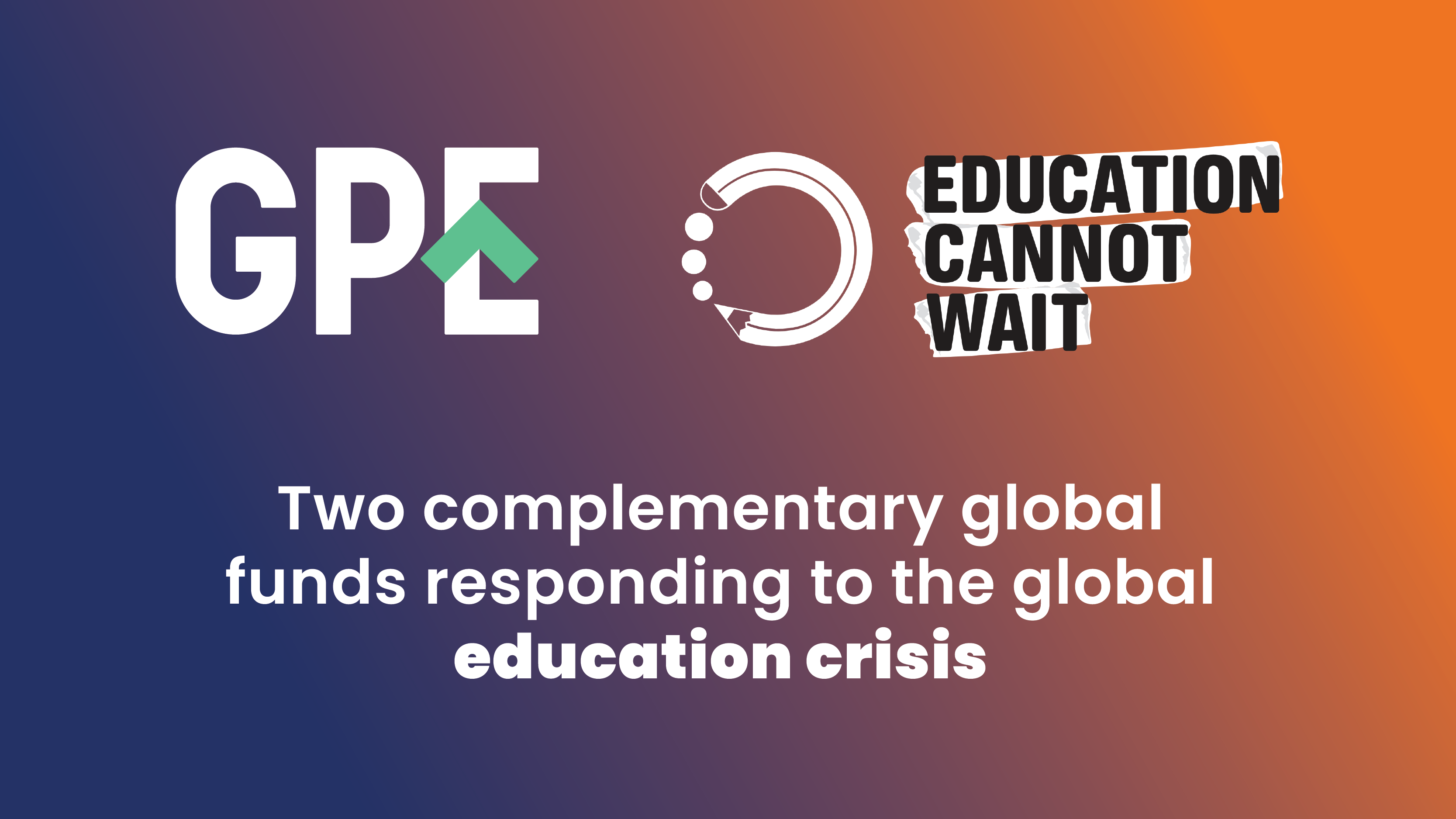The Power of Education in Emergencies: Interview With Denmark’s Minister of Development Cooperation Rasmus Prehn

Denmark is Education Cannot Wait’s (ECW) third largest donor, with US$79.1 million in contributions to date. In this insightful interview with Denmark’s Minister for Development Cooperation, Rasmus Prehn, we explore the importance of girls’ education and gender equality, the humanitarian-development nexus, expanded engagement with the private sector, education in emergency response to the COVID-19 pandemic and more. A former high school teacher, with a master’s degree in social science, Minister Prehn has been a member of Danish Parliament since 2005, and was named Minister for Development Cooperation on June 27, 2019. Minister Prehn is the former chairman of the Danish Research, Education and Further Education Committee, a tireless advocate for education in emergencies, and a true champion for achievement of the Sustainable Development Goals, especially SDG4: inclusive and equitable, quality education for all.
Denmark is a strong political advocate of education and girls’ education in emergencies and crisis countries. How do you see investments in education in crisis countries bringing transformative change for the overall development agenda?
RP: Education holds a huge potential for transformation. Both in respect to giving children the tools they need for a sustainable future and in respect to transforming society as we know it into a place where girls and boys, women and men, have equal rights and opportunities. An educated girl can significantly increase her income as compared to girls with no education. Her future children will have a much higher chance of surviving the first five years of their lives.
Girls living in emergency contexts are of particular risk of being out of school. They are also at higher risk of sexual- and gender-based violence, including teenage pregnancies and child marriage. Their sexual and reproductive health and rights are often under pressure during times of crisis. Supporting education is also a way to address these risks, as education provides a foundation for increased gender equality and for the protection of the rights of women and girls.
Denmark’s investments in education in crises have a two-fold aim: 1) to ensure continuity of learning for children so that they have the tools for a better future 2) to re-define gender and social norms and raise girls and boys to be equal citizens with equal rights and opportunities.
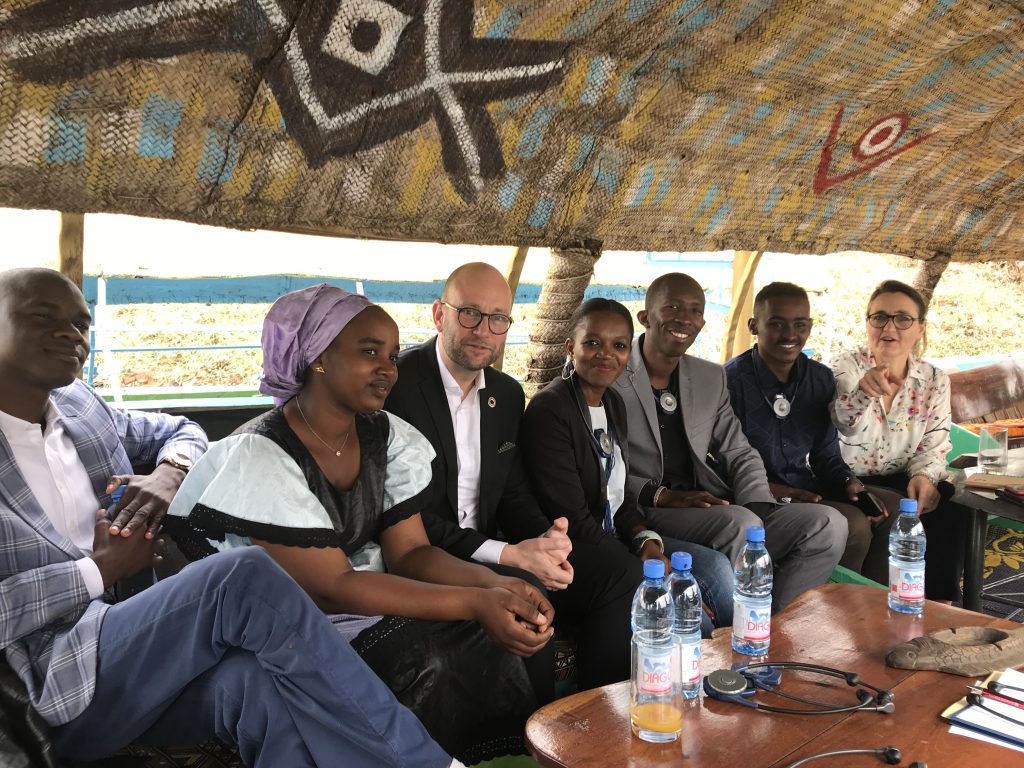
Since Education Cannot Wait became operational in 2017, Denmark has also become one of Education Cannot Wait’s biggest strategic donor partners and has made major investments in Education Cannot Wait over the past years. What are the key incentives for investing in this relatively new global fund?
RP: Denmark is very committed to work more effectively across the humanitarian-development nexus to ensure more sustainable education outcomes in areas affected by conflict and protracted crisis. This was a key incentive for Danish support to ECW right from the start and for the large contributions that have placed Denmark among the largest donors to ECW.
For the same reason, a key priority for Denmark is that ECW focuses on its mandate to bridge the humanitarian-development nexus to secure long-term education impact. This is only more relevant in light of COVID-19, which has led to the close down of schools in more than 190 countries worldwide. When responding to the COVID-19 crisis, there was a need for immediate action to enable continued learning and address protection risks linked to children being out of school, while also supporting resilient education systems.
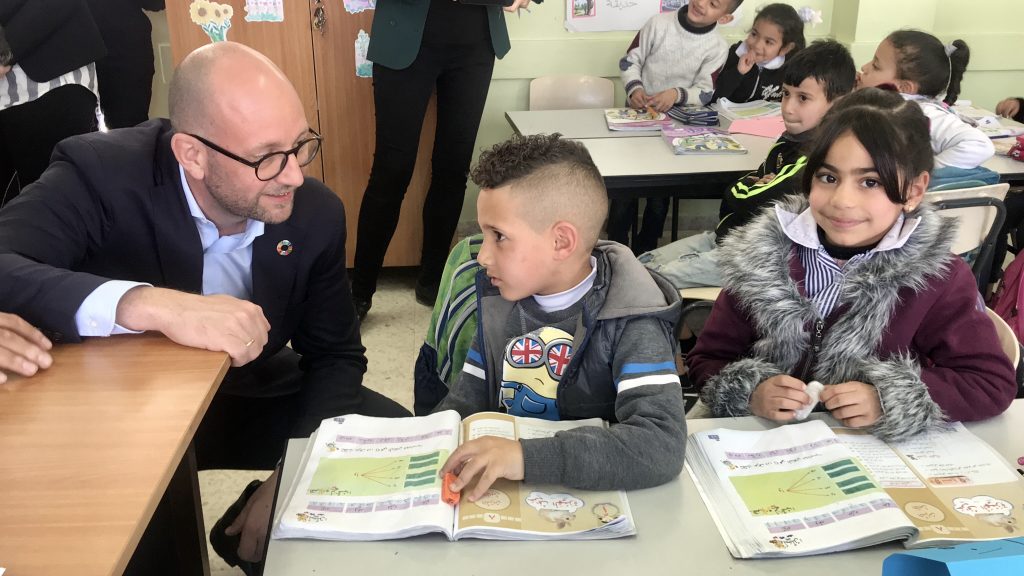
In response to COVID-19, and as the LEGO Foundation – the philanthropic arm of a Danish world class private sector company – increased its support to Education Cannot Wait – you also decided to frontload financing for Education Cannot Wait. This is a wonderful way for governments and private sector to provide matching support. How would you describe this model example of engaging private sector?
RP: Denmark firmly believes in partnerships and collaboration to solve the challenges faced in the world today. We need to work together at all levels to make sure we leave no one behind. Collaboration across the public and private sector is one important way of ensuring progress towards common goals. We recognize and much appreciate the role and support of the LEGO Foundation towards education in emergencies. The Danish Government and the LEGO Foundation are currently strengthening collaboration in the area of education. Through close strategic dialogue and coordinated actions such as the matching support, the aim of the collaboration is to ensure synergies towards common goals and the realization of SDG4. We hope that this can set an example for enhanced private and public sector collaboration also in other sectors.
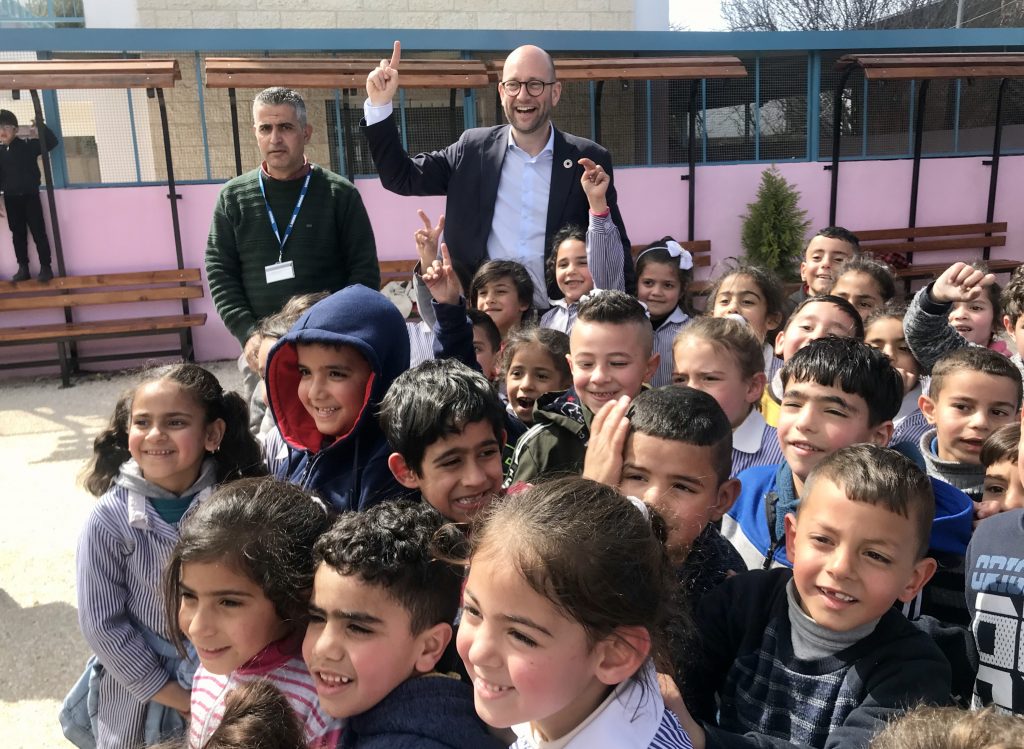
The COVID-19 pandemic has had a global impact upon all areas of virtually everyone’s life. What does Denmark see as the top three priorities moving forward to achieve SDG4 (quality, inclusive education), particularly for crisis-affected children and youth already impacted by armed conflicts, forced displacement and natural disasters – and now doubly hit by COVID-19?
RP: For Denmark, quality and inclusive education is key for learning outcomes. At the same time, both quality and inclusiveness in education are impacted by the context in which children are learning. When the surrounding world is unsafe and uncertain, a pre-condition for children to learn is to ensure a protective environment. Therefore one key priority is a holistic cross-sectoral response that includes access to health care, psychosocial support and protection measures as part of education efforts.
COVID-19 has indeed added a double concern to education in emergencies. A concern that only further stresses the need to develop resilient education systems that are able to deliver quality education in crisis contexts. Be it pandemics, natural disasters or wars. A significant element is to ensure that we reach those furthest behind by using innovative and context-specific methods for distance learning. It is also important that we consider that education quality is not only about the number of children accessing education or learning outcomes, but also about teaching methods, curriculum and the social environment in schools between students and teachers, and students and their peers.
A particular concern for Denmark are the consequences that the school closures caused by COVID-19 have for both girls’ and women’s rights. We know that education is one key element to prevent social and gender norms that drive harmful practices. Where pre-COVID-19 projections showed that a decline in harmful practices could be reached, post-COVID-19 projections show that more girls will be exposed to female genital mutilation and child marriage. Therefore, quality education and establishing inclusive conditions for girls in schools through addressing harmful social and gender norms is a key priority for Denmark and also is the reason why we are part of the ECW gender reference group. The classroom reflects the surrounding society and the reverse is also true. We must work at all levels to create inclusive conditions for girls’ access to school.
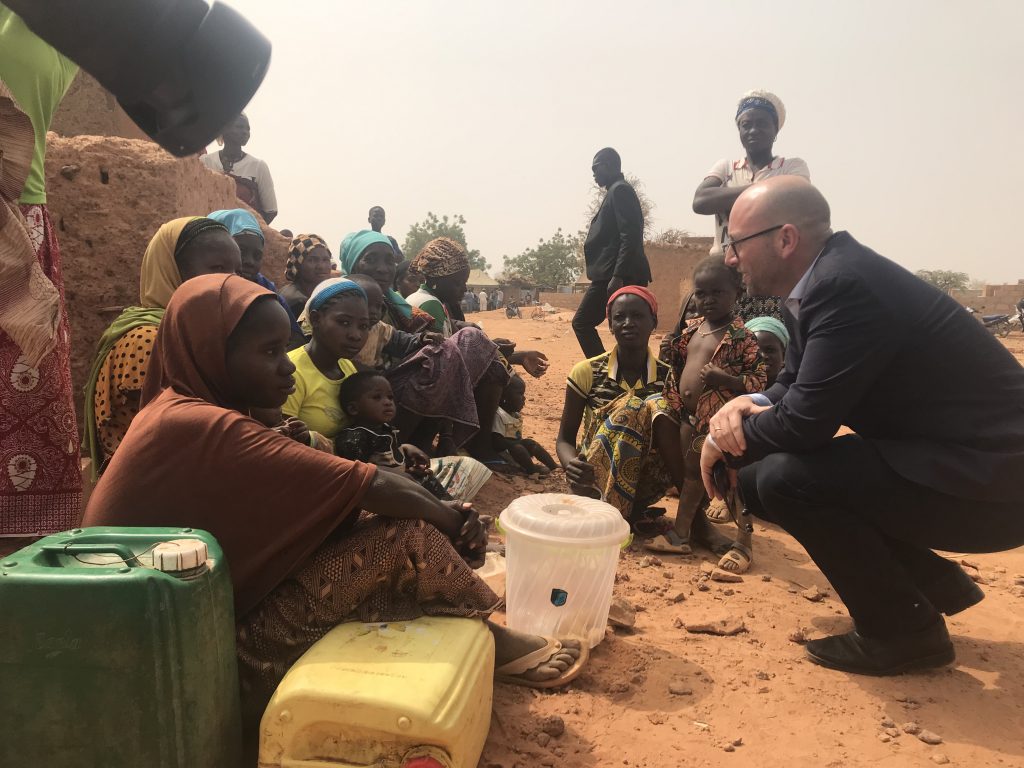
As a Member of Parliament, you have been the Chairman of the Committee on Research, Education and Further Education. What does education represent for you on a more personal level? How does this influence you in your work as a policymaker?
RP: I could not be a bigger champion of education and skills development: this is the key to create the hope for a better future. I have immense respect for the potential offered by education at all levels to change norms in a positive way. This is why I have been preoccupied with education since my early youth. I have myself worked as a high school teacher for 8 years. I have also been a teacher in the Danish folk high schools (“højskoler”), which is an education institution invented in the 1830s with the aim to help people qualify as active members of society with the means to change the political situation and meet across social borders.
Social
Happy to announce that DK will frontload 100 mil DKK to meet @EduCannotWait appeal for #COVID19 response to ensure cont'd education + mitigation of health and protection concerns in humanitarian settings 📚🌍#educationinemergencies #protectwomenandgirls #dkaid #dkpol pic.twitter.com/IWQaPQEque
— Rasmus Prehn (@RasmusPrehn) April 17, 2020

